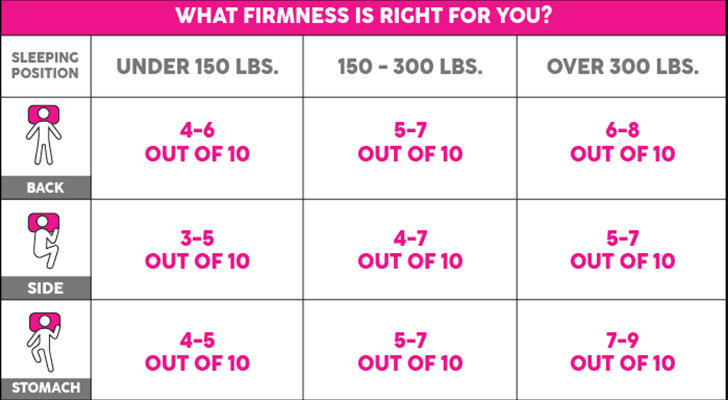Don’t Miss These Key Details When Buying a Mattress!

Choosing the right mattress is a crucial decision as it directly affects both the quality of your sleep and your overall health. With so many options available on the market, it’s easy to feel overwhelmed. To make the process easier, it’s important to consider several key factors that influence comfort, support, and health. This article will guide you through the essential details to pay attention to when buying a mattress, helping you choose one that ensures both comfort and well-being.
1. Understanding Different Mattress Types
Before making any purchase, it’s vital to understand the various types of mattresses available. Each type offers unique features that cater to different sleeping preferences and health needs.
• Memory Foam Mattresses:
Memory foam adapts to your body’s shape, providing excellent pressure relief, especially for side sleepers or those with joint pain. However, it can retain heat, which may be uncomfortable for those who tend to sleep hot. Memory foam is best for people looking for deep contouring and support.
• Innerspring Mattresses:
Innerspring mattresses are traditional options known for their breathability and firm support. These mattresses have coils that provide good spinal alignment, making them suitable for back sleepers. They are less likely to trap heat compared to memory foam, making them a good option for hot sleepers.
• Latex Mattresses:
Latex mattresses, especially natural latex, are highly durable, breathable, and resistant to allergens like dust mites. They are ideal for people with allergies or those who prefer an eco-friendly option. Latex provides a balance between comfort and support, making it suitable for most sleeping positions.
• Hybrid Mattresses:
Hybrid mattresses combine the benefits of innerspring coils with memory foam or latex layers. They are designed to offer a balanced feel—providing both comfort and support. Hybrids are ideal for people who want a combination of pressure relief and firm support, making them suitable for all sleeping positions.
2. Choosing the Right Firmness Based on Your Sleeping Position

The firmness of a mattress plays a critical role in how well it supports your spine and keeps your body aligned. The right firmness depends on your sleeping position.
• Side Sleepers:
Side sleepers generally require a medium-soft to medium-firm mattress. A softer mattress allows the shoulders and hips to sink slightly, providing pressure relief and promoting better spinal alignment.
• Back Sleepers:
Back sleepers need a mattress with medium firmness to support the natural curve of their spine. A mattress that is too soft may lead to insufficient support for the lower back, potentially causing discomfort over time.
• Stomach Sleepers:
Stomach sleepers require a firmer mattress to prevent the spine from arching excessively. A mattress that’s too soft can cause the midsection to sink too deeply, leading to misalignment and back pain.
3. Consider the Materials and Health Benefits

The materials used in a mattress not only affect comfort but can also influence your health, particularly for those with allergies or specific health concerns.
• Hypoallergenic Materials:
If you suffer from allergies, it’s essential to choose a mattress made from hypoallergenic materials like natural latex or memory foam with anti-allergen properties. These materials can help reduce the accumulation of dust mites and other allergens.
• Breathability and Temperature Control:
Mattresses with breathable materials, such as latex and innerspring, help regulate temperature and prevent heat buildup. A well-ventilated mattress ensures a cooler, more comfortable sleep, especially for those who tend to overheat at night.
• Eco-Friendly and Non-Toxic Materials:
Many modern mattresses are made with eco-friendly, non-toxic materials that are free of harmful chemicals. These mattresses are ideal for those concerned about environmental impact or chemical sensitivities, ensuring a healthier sleep environment.
4. Mattress Care and Maintenance
Proper maintenance will help extend the life of your mattress and ensure it remains clean and supportive.
• Flipping and Rotating:
To avoid uneven wear, it’s important to rotate your mattress every 3-6 months. This helps distribute the weight evenly and prevents sagging in specific areas, especially in innerspring and hybrid mattresses.
• Cleaning and Hygiene:
Regular cleaning, such as vacuuming, can prevent dust mites and bacteria from accumulating. Using a mattress protector or cover will help keep your mattress clean and stain-free.
5. Setting a Budget and Considering Value for Money
While price is an important factor, it should not be the sole determinant in your mattress decision. A higher price tag often indicates better materials, durability, and comfort, but the most expensive mattress may not always be the best for your needs.
• Value for Money:
Look for mattresses that offer the right balance between quality and cost. While you don’t need to opt for the most expensive mattress, investing in a medium-priced mattress with good reviews and reliable brand reputation can provide better comfort and durability in the long run.
• Brand Reputation:
Well-known brands often offer better customer service and warranties. A trusted brand will likely ensure high-quality materials, reliable construction, and longer-lasting comfort.
6. Trial Period and Return Policies
Many mattress companies offer trial periods, allowing you to test the mattress in your own home. Understanding these policies will give you peace of mind, knowing you can return the mattress if it doesn't meet your expectations.
• Trial Period:
Make sure the retailer offers a generous trial period (30-100 days), so you can experience the mattress at home and determine if it’s a good fit for your sleep needs. During this time, you can return the mattress if it doesn’t provide the desired comfort or support.
• Return and Exchange Policy:
Before buying, thoroughly review the return and exchange policy. Some companies charge a restocking fee or only offer store credits, so understanding the terms will prevent potential frustrations later.
Conclusion
Choosing the right mattress is a significant investment in your health and well-being. By considering the mattress type, firmness, materials, care, and overall budget, you can make an informed decision that promotes better sleep quality and supports your physical health. Take the time to research and understand what mattress suits your sleeping style and needs, and remember that a good mattress is essential for achieving restful, rejuvenating sleep. By following these guidelines, you’ll ensure that your mattress provides the comfort and support your body requires for long-term health.
